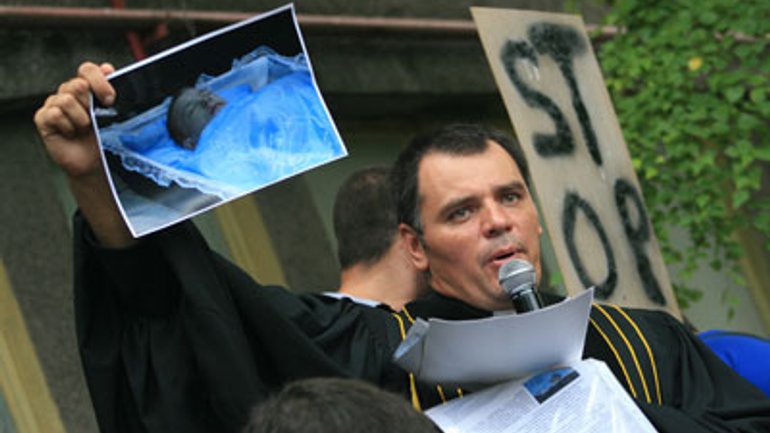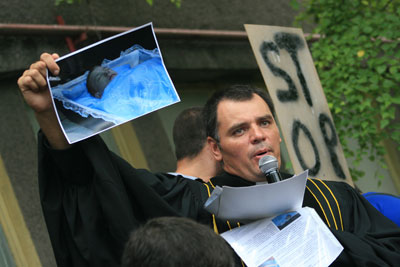Militants of Luhansk and Donetsk People’s Republics disguise assaults as struggle for Orthodoxy

 Gennady Mohnenko, Pastor of the Church of Good Changes from Mariupol and Director of the Pilgrim Republic Foundation, wrote on his Facebook page a story about his friend – a pastor, whose name he does not disclose for obvious reasons.
Gennady Mohnenko, Pastor of the Church of Good Changes from Mariupol and Director of the Pilgrim Republic Foundation, wrote on his Facebook page a story about his friend – a pastor, whose name he does not disclose for obvious reasons.
“The militants arrested him in the house of prayer, having come to worship with Kalashnikov guns. They brought him to the basement and started arguing whether to shoot him or not. However, they decided first to take him to the local priest’s trail. The latter pastor had soul-saving talks with the pastor (blindfolded with duct tape with his hands handcuffed)... After much hesitation, the priest graciously lifted his finger upwards, allowing the pastor to survive. The priests also visited the prayer house captured by the militants, assessed the new premises ... they did it in between the prayers for 'grad' guns and sanctification of Hirkin’s basements where the people were tortured, got their stomachs ripped up and murdered. You can pray with the militants of the People’s Republic of Donetsk for their diabolical experiment, bless this ‘holy’ army ... but one request, change your name (that people avoid confusion in the mind) into the 'Protestants of the Moscow Patriarchate' and practice your fourth Reich (oh sorry, it is 'the Fourth Rome' of course),”, says Gennady Mokhnenko.
However, he expressed his sincere respect for the “true Orthodox priests and people who understand all the devilry done under the guise of ‘Moscow Orthodoxy’ in the southeast of the country.”









